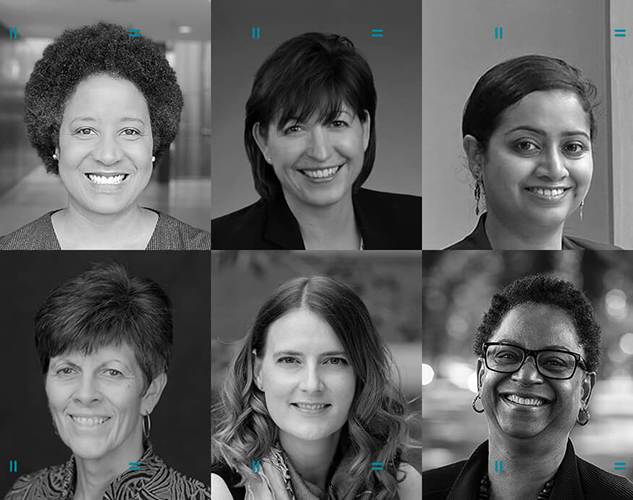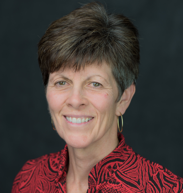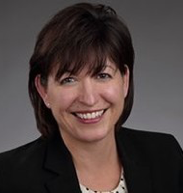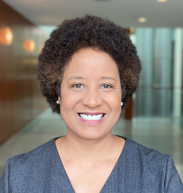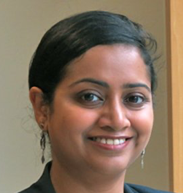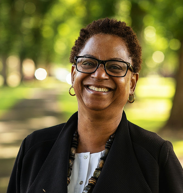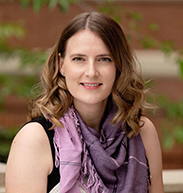Bios
Panelists & Moderator
Anne P. Massey, Ph.D.
Dean of the Isenberg School of Management, University of Massachusetts Amherst
Since August 2019, Dr. Massey has been proudly serving as the first female dean of the Isenberg School of Management, University of Massachusetts Amherst. A leading scholar in information systems, her academic career spans five universities, with the bulk of her career at the Kelley School of Business at Indiana University Bloomington. At IU, among varied leadership roles, she developed cross-disciplinary programs between the School of Informatics and Computing, the College of Arts and Sciences, the Business School, the School of Public Environmental Affairs, and the School of Law. She also co-founded the Center of Excellence for Women in Technology, which is the nation’s first and only large-scale, interdisciplinary, university-based initiative to encourage and promote the participation, empowerment, and achievement of women students, faculty, staff and alumnae in technology. Dr. Massey has earned several awards for teaching undergraduate and graduate business students, including the Indiana University Board of Trustees’ Distinguished Teaching Award.
Mitzi M. Montoya, Ph.D.
Dean of the Anderson School of Management, University of New Mexico
Dr. Montoya received her Ph.D. in Marketing and Statistics and B.S. in Applied Engineering Science, both from Michigan State University. Dr. Montoya is a thought leader in higher education.
Throughout her career, she has supported student and faculty success, enhanced entrepreneurial and innovation ecosystems and led collaborative initiatives that advance economic and community prosperity. Prior to joining UNM, Dr. Montoya was the Sara Hart Kimball Dean of the Oregon State University College of Business. She also served at Arizona State University, where she was the dean of the College of Technology & Innovation, vice provost of the ASU Polytechnic campus and inaugural vice president and university dean of entrepreneurship & innovation for ASU. Dr. Montoya began her career at North Carolina State University, where she held the Zelnak Chair in Marketing & Innovation in the Poole College of Management and was special assistant to the vice chancellor of research. She is a former American Council on Education (ACE) fellow. Dr. Montoya's research focuses on innovation processes and strategies and the role of technology as an enabler of virtual team decision-making. She is widely published and a recipient of numerous grants. She has taught courses and advised organizations around the world on innovation and marketing strategy. At heart, she is an innovator with a mission to be an agent of change for the greater good.
Harriet B. Nembhard, Ph.D.
Dean of the College of Engineering, University of Iowa
Dr. Nembhard is the dean of the College of Engineering at the University of Iowa and holds the Roy J. Carver Professorship in Engineering. As dean, she oversees a variety of programs, departments, and centers and institutes that support an undergraduate student body of 2,500 students along with 110 faculty, 85 staff, 330 graduate students, and more than 15,000 alumni. Dr. Nembhard is also an accomplished researcher in manufacturing and healthcare systems engineering. Her work has led to several advances, including a patented imprint lithography manufacturing process for small-scale medical devices and a sensor-based system to conduct early screening for Parkinson’s disease. Dr. Nembhard is a fellow of the Institute of Industrial and Systems Engineers (IISE) and a fellow of the American Society for Quality (ASQ). She has advised four post-docs, 13 Ph.D.s, and numerous other students and scholars. Many of her former students hold significant positions in industry and academia around the world. Throughout her career, she has advanced a community of inclusive excellence where diversity, equity and equal opportunity create a welcoming environment that enables success for everyone. She has led and participated in efforts in this regard across the academy and professional societies, including NSF ADVANCE, NSF LATTICE, NSF TECAID, National Academy of Engineering, and Society of Women Engineers.
Ipshita Pal, Ph.D.
Assistant Professor of Health and Human Services, St. John's University
An empirical social scientist, Dr. Pal's research interests center around the world of work, focusing on how public and organizational policies shape individual and family well-being. Her research has been funded by the Families and Work Institute and the Society for Human Resource Management, and she a recipient of the 2020 Early Career Fellowship from the Work and Family Researchers’ Network. Pal is particularly interested in understanding factors that shape women’s choices and trajectories in the labor market. Her doctoral research has been published by the Russell Sage Foundation and featured in the Washington Post, the Wall Street Journal and The Economist. She has previously taught at Columbia and Fordham Universities in New York and has experience in research consultancy, program evaluation and non-profit leadership. Before joining the faculty at St. John’s, Pal was a postdoctoral research scientist at Columbia University and a fellow of the Columbia Population Research Center. She holds a B.A. (Honors) in Economics and an MSW from Delhi University, an M.Sc. in Social Policy from Oxford University and a Ph.D. in Social Policy Analysis from Columbia University.
Charlene Alexander, Ph.D.
Vice President and Chief Diversity Officer, Oregon State University
Dr. Alexander came to OSU from Ball State University, where she served as the associate provost for diversity and interim associate vice president for community engagement. Under her leadership, Oregon State developed its first Diversity Strategic Plan that affirms the university’s dedication to diversity and inclusion and to ensuring that diversity is an integral part of the Oregon State University identity. Her efforts led OSU to receive the Higher Education Excellence in Diversity (HEED) Award in 2018. Dr. Alexander received her undergraduate degree in psychology from Creighton University, earned her Master’s in Counseling and Guidance from Creighton University and completed her Ph.D. in Counseling Psychology from the University of Nebraska-Lincoln.
Audrey Iffert-Saleem, Ed.D.
Director of the Center for the Advancement of Women in Leadership, Oregon State University
As executive director of strategic initiatives for the OSU College of Business, two critical initiatives in Dr. Iffert-Saleem’s portfolio include founding and leading the OSU Center for the Advancement of Women in Leadership and InnovationX, the OSU Center of Excellence for Innovation and Entrepreneurship. Dr. Iffert-Saleem has built a diverse student incubator program at OSU and is a core member of the team that propelled OSU to reach gender parity in the MBA program in fall 2018. She has developed and delivered women’s leadership workshops and courses, launched a women’s mentorship program, and served as a founding member of a regional women’s economic development initiative in the Greater Phoenix Metro Area. Dr. Iffert-Saleem has received numerous grants to advance access and inclusion in business. She has spoken on panels and led workshops on building inclusive workplaces and business programs. Previously, Dr. Iffert-Saleem coordinated the Arizona State University institution-wide effort to advance entrepreneurship education as the executive director of strategic initiatives in the ASU Office of Entrepreneurship + Innovation, where she focused on transforming entrepreneurship culture to promote access and inclusion. She holds an Ed.D. in Higher Education Leadership and an M.A. in Human Communication, both from ASU.








